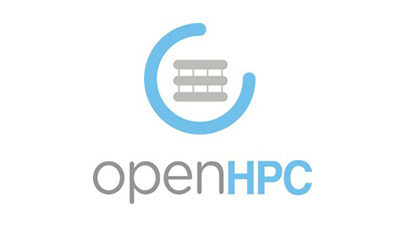
OpenPOWER Reboot – New Director, New Silicon Partners, Leveraging Linux Foundation Connections
July 2, 2020
Earlier this week the OpenPOWER Foundation announced the contribution of IBM’s A21 Power processor core design to the open source community. Roughly this time Read more…

OpenHPC Pushes to Prove its Openness and Value at SC16
October 24, 2016
At SC15 last year the announcement of OpenHPC – the nascent effort to develop a standardized HPC stack to ease HPC deployment – drew a mix of enthusiasm and wariness; the latter in part because of Intel’s prominence in the group. There was general agreement that creating an open source, plug-and-play HPC stack was a good idea. Read more…

Heading into ISC16, OpenHPC Releases Latest Stack with 60-plus Packages
June 16, 2016
SC15 was sort of a muted launch party for OpenHPC – the nascent effort to develop a ‘plug-and-play’ software framework for HPC. There seemed to be widespread agreement the idea had merit, not a lot of knowledge of details, and some wariness because Intel was a founding member and vocal advocate. Next week, ISC16 will mark the next milestone for OpenHPC, which has since grown into a full-fledged Linux Foundation Collaborative Project and today released version 1.0.1 of OpenHPC (build and test tools). Read more…

Linux Foundation Maps Top500 Run
July 30, 2013
This week the Linux Foundation released a special report about its role over the last twenty years of the Top500, pointing to some significant trends that helped it switch places with Unix (which once had a 96% share of the list) in roughly a one-decade timeframe. For instance, there are a few.... Read more…

SUSE Gains Traction with Cloud Providers
August 3, 2012
Earlier this week, Linux distributor SUSE announced that more than 20 major vendors are participating in its cloud provider program. Read more…

- Click Here for More Headlines

Whitepaper
Transforming Industrial and Automotive Manufacturing
In this era, expansion in digital infrastructure capacity is inevitable. Parallel to this, climate change consciousness is also rising, making sustainability a mandatory part of the organization’s functioning. As computing workloads such as AI and HPC continue to surge, so does the energy consumption, posing environmental woes. IT departments within organizations have a crucial role in combating this challenge. They can significantly drive sustainable practices by influencing newer technologies and process adoption that aid in mitigating the effects of climate change.
While buying more sustainable IT solutions is an option, partnering with IT solutions providers, such and Lenovo and Intel, who are committed to sustainability and aiding customers in executing sustainability strategies is likely to be more impactful.
Learn how Lenovo and Intel, through their partnership, are strongly positioned to address this need with their innovations driving energy efficiency and environmental stewardship.
Download Now
Sponsored by Lenovo
Whitepaper
How Direct Liquid Cooling Improves Data Center Energy Efficiency
Data centers are experiencing increasing power consumption, space constraints and cooling demands due to the unprecedented computing power required by today’s chips and servers. HVAC cooling systems consume approximately 40% of a data center’s electricity. These systems traditionally use air conditioning, air handling and fans to cool the data center facility and IT equipment, ultimately resulting in high energy consumption and high carbon emissions. Data centers are moving to direct liquid cooled (DLC) systems to improve cooling efficiency thus lowering their PUE, operating expenses (OPEX) and carbon footprint.
This paper describes how CoolIT Systems (CoolIT) meets the need for improved energy efficiency in data centers and includes case studies that show how CoolIT’s DLC solutions improve energy efficiency, increase rack density, lower OPEX, and enable sustainability programs. CoolIT is the global market and innovation leader in scalable DLC solutions for the world’s most demanding computing environments. CoolIT’s end-to-end solutions meet the rising demand in cooling and the rising demand for energy efficiency.
Download Now
Sponsored by CoolIT
Advanced Scale Career Development & Workforce Enhancement Center
Featured Advanced Scale Jobs:
HPCwire Resource Library
HPCwire Product Showcase
© 2024 HPCwire. All Rights Reserved. A Tabor Communications Publication
HPCwire is a registered trademark of Tabor Communications, Inc. Use of this site is governed by our Terms of Use and Privacy Policy.
Reproduction in whole or in part in any form or medium without express written permission of Tabor Communications, Inc. is prohibited.
























